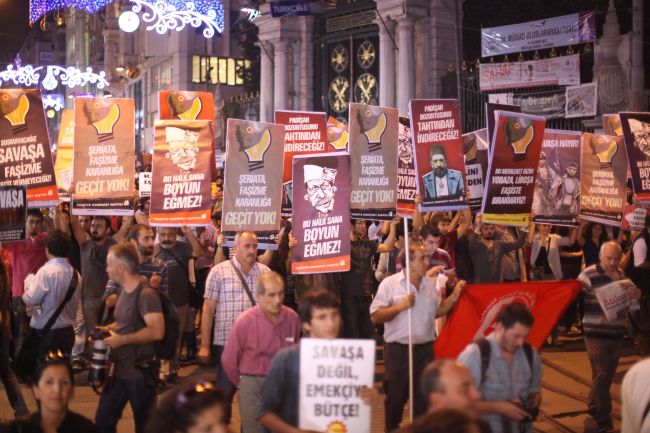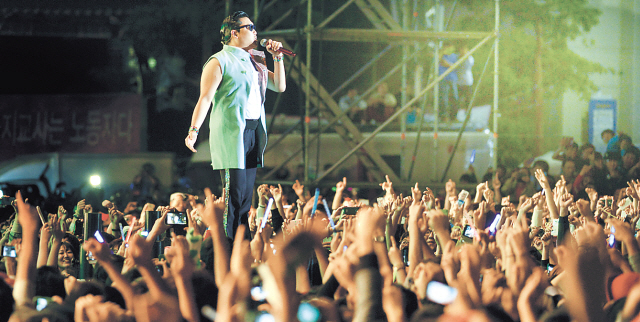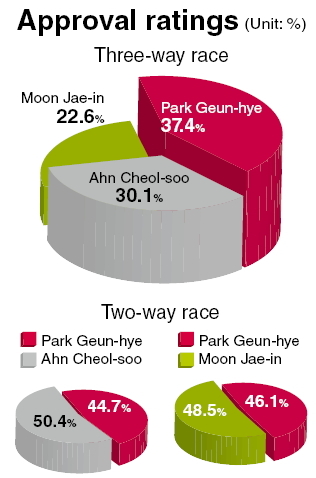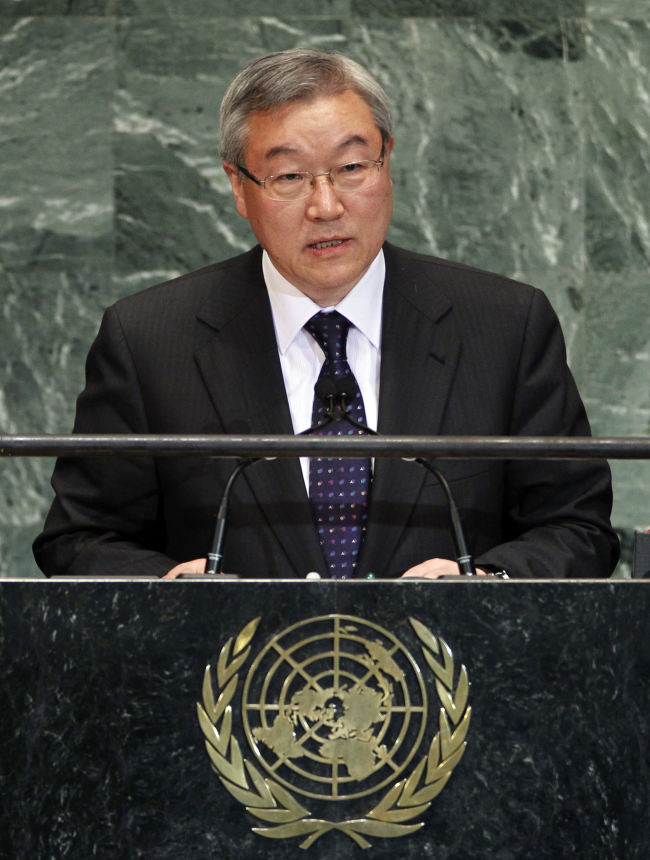Governing party needs drastic revamping
Alarm bells are ringing in the ruling Saenuri Party as post-Chuseok polls show that support for its presidential candidate Park Geun-hye remains stagnant.
In a closed-door meeting of lawmakers Thursday, some governing party members called for a complete overhaul of Park’s campaign team and the party’s leadership, noting that it would be all but impossible to win the Dec. 19 presidential election if the current trend continues.
Rep. Yoo Seong-min, a deputy chairman of the party’s central election committee and one of Park’s key aides, said all her senior campaign managers ― mostly Park’s close confidants ― must step down from their posts to galvanize the party’s election strategy and win over the hearts and minds of the voters. This means a drastic revamping is needed to win back public trust.
Most recent polls show her trailing independent contender Ahn Cheol-soo in a hypothetical two-way race, although the gap has narrowed in the last few days. She is also in a neck-and-neck race with Moon Jae-in, the main opposition Democratic United Party candidate.
It remains to be seen if voices for reform from inside the party will take concrete shape as Park, the daughter of autocratic former President Park Chung-hee, showed negative responses to the proposal.
The recent situation is similar to that in 2002, when Lee Hoi-chang, the presidential candidate of the then main opposition Grand National Party, the predecessor of the Saenuri Party, lost to the ruling party contender Roh Moo-hyun. At that time, Lee maintained an overall lead over Roh but suffered defeat due to the realization of a single candidate in the ruling camp right before the election.
Little wonder Park is struggling, given aggravated public sentiment toward the incumbent Lee Myung-bak administration. Five years ago, we vividly remember, then ruling party candidate Chung Dong-young lost to Lee by a big margin as voters turned their back on the Roh administration.
While it’s true Park took a hit over her controversial remarks about the legacy of her father’s 18-year dictatorial rule and a string of corruption cases involving party members, this crisis is of her own making and she has to stave off the challenges herself.
While it’s her choice if she wants to let loyal supporters retreat from the frontline, it might become an inevitable decision, considering the need to show people that she and her party are changing drastically.
Most problematic for her campaign is that she is viewed as a contender representing past, regressive forces. In contrast, Ahn is seen as a figure representing future, progressive hopes.
As a conservative candidate, Park needs to show that she is different from her opposition rivals by developing practical policies that appeal to undecided voters in the middle. This is where she can show her strongest points.
It’s natural for candidates to have ups and downs in the run-up to the election, and there is no need to fluctuate between hopes and fears over short-term results. What is needed is for Park to make every effort to change herself and the party and try to get closer to the people.
Alarm bells are ringing in the ruling Saenuri Party as post-Chuseok polls show that support for its presidential candidate Park Geun-hye remains stagnant.
In a closed-door meeting of lawmakers Thursday, some governing party members called for a complete overhaul of Park’s campaign team and the party’s leadership, noting that it would be all but impossible to win the Dec. 19 presidential election if the current trend continues.
Rep. Yoo Seong-min, a deputy chairman of the party’s central election committee and one of Park’s key aides, said all her senior campaign managers ― mostly Park’s close confidants ― must step down from their posts to galvanize the party’s election strategy and win over the hearts and minds of the voters. This means a drastic revamping is needed to win back public trust.
Most recent polls show her trailing independent contender Ahn Cheol-soo in a hypothetical two-way race, although the gap has narrowed in the last few days. She is also in a neck-and-neck race with Moon Jae-in, the main opposition Democratic United Party candidate.
It remains to be seen if voices for reform from inside the party will take concrete shape as Park, the daughter of autocratic former President Park Chung-hee, showed negative responses to the proposal.
The recent situation is similar to that in 2002, when Lee Hoi-chang, the presidential candidate of the then main opposition Grand National Party, the predecessor of the Saenuri Party, lost to the ruling party contender Roh Moo-hyun. At that time, Lee maintained an overall lead over Roh but suffered defeat due to the realization of a single candidate in the ruling camp right before the election.
Little wonder Park is struggling, given aggravated public sentiment toward the incumbent Lee Myung-bak administration. Five years ago, we vividly remember, then ruling party candidate Chung Dong-young lost to Lee by a big margin as voters turned their back on the Roh administration.
While it’s true Park took a hit over her controversial remarks about the legacy of her father’s 18-year dictatorial rule and a string of corruption cases involving party members, this crisis is of her own making and she has to stave off the challenges herself.
While it’s her choice if she wants to let loyal supporters retreat from the frontline, it might become an inevitable decision, considering the need to show people that she and her party are changing drastically.
Most problematic for her campaign is that she is viewed as a contender representing past, regressive forces. In contrast, Ahn is seen as a figure representing future, progressive hopes.
As a conservative candidate, Park needs to show that she is different from her opposition rivals by developing practical policies that appeal to undecided voters in the middle. This is where she can show her strongest points.
It’s natural for candidates to have ups and downs in the run-up to the election, and there is no need to fluctuate between hopes and fears over short-term results. What is needed is for Park to make every effort to change herself and the party and try to get closer to the people.
















